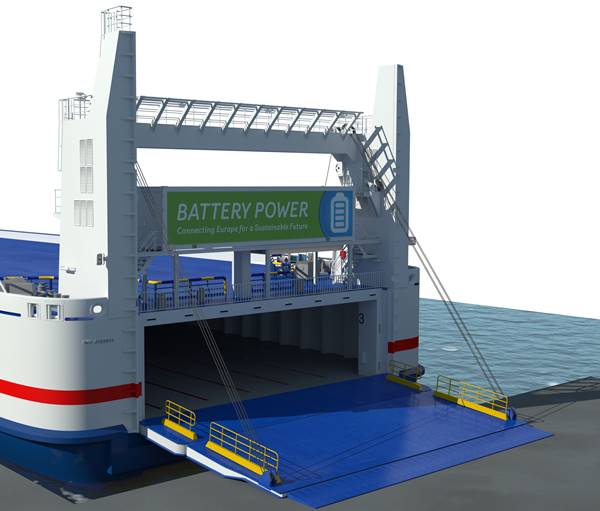Stena Line launches ‘battery power’ initiative
05/03/2018

The next step in Stena Line's ongoing sustainability strategy is to test new environmentally friendly energy options for the propulsion of its vessels. Stena Line recently signed a contract with Callenberg Technology Group for batteries with a total capacity of 1 MWh which will be installed on the Stena Jutlandica, which operates between Gothenburg and Frederikshavn. This means that, before the summer, battery power during ‘in port’ operations will become a reality.
The battery project is an important part of Stena Line's ongoing sustainability strategy. Stena Line has set an ambitious target for battery propulsion to be able to help power vessels for up to 50 nautical miles.
"Sustainability is very high on our agenda and we are constantly evaluating new ways to reduce our impact on the environment. From 2015, for example, methanol has been part of the fuel mix on the Stena Germanica, which operates between Gothenburg and Kiel, and we also run around 300 different energy saving projects to help us achieve our goal. As both the size and cost of batteries decreases, battery operation is becoming a very exciting alternative to traditional fuels for shipping, with the added prospect of emissions to the air being completely eliminated”, says Stena Line's CEO Niclas Mårtensson.
The battery project has just started and will be rolled out on a step by step basis. In step one, the focus will be on switching to battery power for bow thrusters and manoeuvring when berthing in port. In step two, an extended battery operation will be connected to the propellers, enabling the Stena Jutlandica to operate on electricity for approximately 10 nautical miles, equal to the distance between Göteborg and Vinga Lighthouse.
In step three, battery capacity will be further expanded enabling a vessel to operate for approximately 50 nautical miles on electricity, which corresponds to the distance between Gothenburg and Frederikshavn.
The ‘step’ approach will provide Stena Line with important testing opportunities to gather data and knowledge about the future potential use of electrical power. If this project is successful, battery operation may also be applicable to other vessels within Stena Line’s fleet of 38 vessels.
The technical solutions are being developed in partnership with Stena Teknik, who work collaboratively with academia, government and a range of key strategic suppliers. The project has already received a lot of positive feedback, and the first phase is being supported and co-funded by the Swedish Maritime Administration and the EU.
